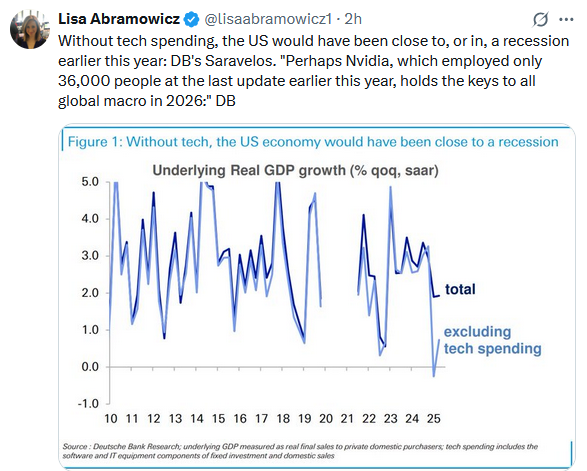Aspire Biopharma faces potential Nasdaq delisting after compliance shortfall
Several articles and social media posts have recently discussed the irregular partnerships that Nvidia (NASDAQ:NVDA) is forming with some of its clients. The gist of the story is that Nvidia is investing in its clients, who then use the funds to buy Nvidia chips. This is what CNBC stated in a headline on Wednesday.
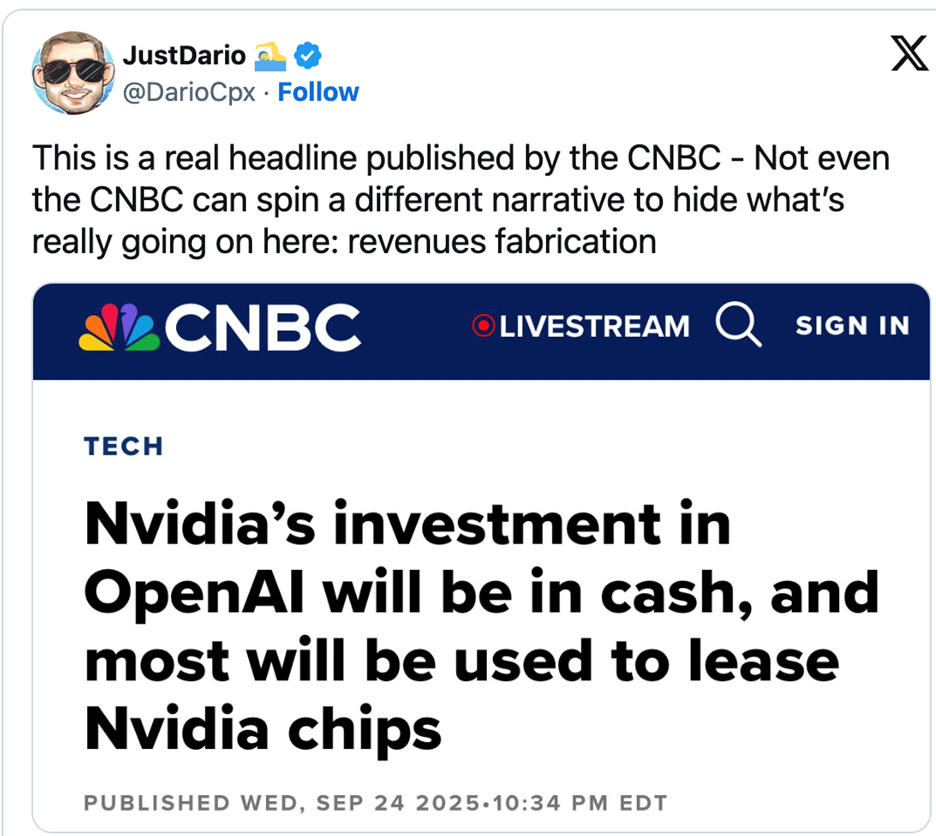
This is similar to trade financing, except that Nvidia is investing, rather than lending, to its customers. Consider its most recent partnership, in which Nvidia announced its intention to invest up to $100 billion in OpenAI. They deem it a strategic partnership to deploy at least 10 gigawatts of Nvidia systems for OpenAI’s infrastructure. OpenAI intends to use the investment funds to buy Nvidia chips and systems.
The deal creates a mutual dependency. If OpenAI is successful, it will drive greater demand for Nvidia’s chips. At the same time, Nvidia’s hardware increases the odds of OpenAI’s success. OpenAI has similar circular partnerships with Microsoft (NASDAQ:MSFT), Amazon (NASDAQ:AMZN), and Google (NASDAQ:GOOGL).
Such mutual dependency can be a winning plan if OpenAI is successful. However, the investment could prove damaging if OpenAI fails to produce profits; thus, it doesn’t need as many Nvidia chips as was initially expected. Furthermore, the deal questions the sustainability of Nvidia’s growth potential. Per Bespoke Investments:
You don’t have to be a skeptic about AI technology’s promise in general to see this announcement as a troubling signal about how self-referential the entire space has become. If NVDA has to provide the capital that becomes its revenues in order to maintain growth, the whole ecosystem may be unsustainable:
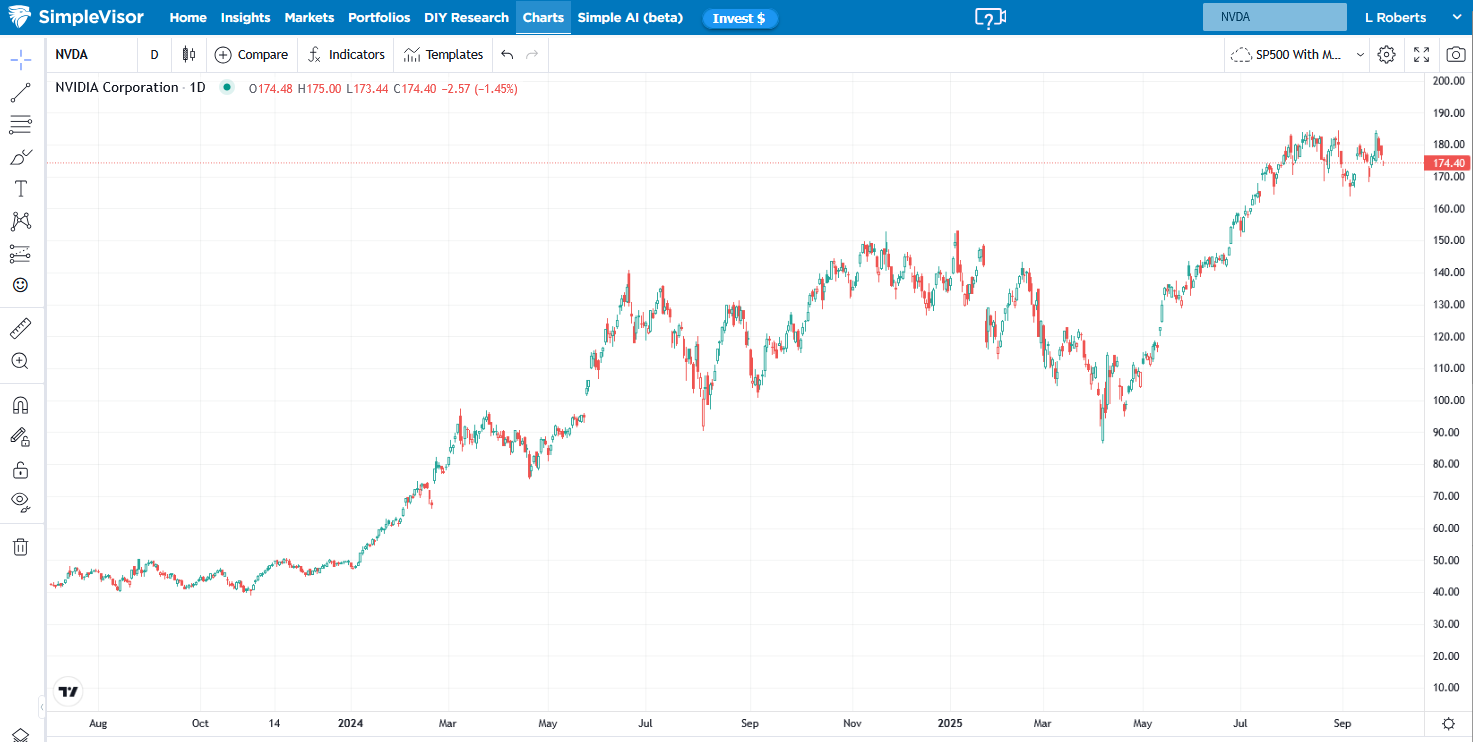
Corporate Bond Investors Have No Fear
Unlike US Treasury bonds, Corporate bonds have credit risk, or the possibility that the bond issuer defaults. Accordingly, investors willing to take on default risk earn additional yield compared to the risk-free yield of US Treasury bonds. Thus, a fair yield calculation for a corporate bond should incorporate historical and expected default rates.
Today’s speculative investment environment is also present in the corporate bond market. To illustrate this, we examine the yield premium, or yield spread, of BB-rated corporate bonds compared to the yield of similar-maturity US Treasuries. The graphic below shows that BB-rated bonds yield 1.69% more than US Treasuries.
Based on the graph of the yield spread and its historical percentile over the last 20 years, this spread is extremely low. The bottom left table shows that BB investors are only earning 1.39% more than AAA corporate bond investors. To make sense of the extremely tight spreads, we need to quantify default risk. For this, we lean on S&P Global, one of the prominent bond rating agencies. Per their analysis:
For example, our historical statistics show a 3-year cumulative default rate for a ‘BBB’ rated company of 0.91%, vs 4.17% for a ‘BB’ rated one, 12.41% for a ‘B’ rated one, and 45.67% for a ‘CCC/CC’ rated one.
Over three years, a BB-rated bond has, on average, a 4.17% chance of defaulting. At current yields, investors can earn an additional yield spread of 5.07% (1.69% × 3) over Treasuries over three years. That may seem like a good deal. However, the default analysis is not steady. When the economy is strong, it runs below average, and when it’s poor, it runs well above average.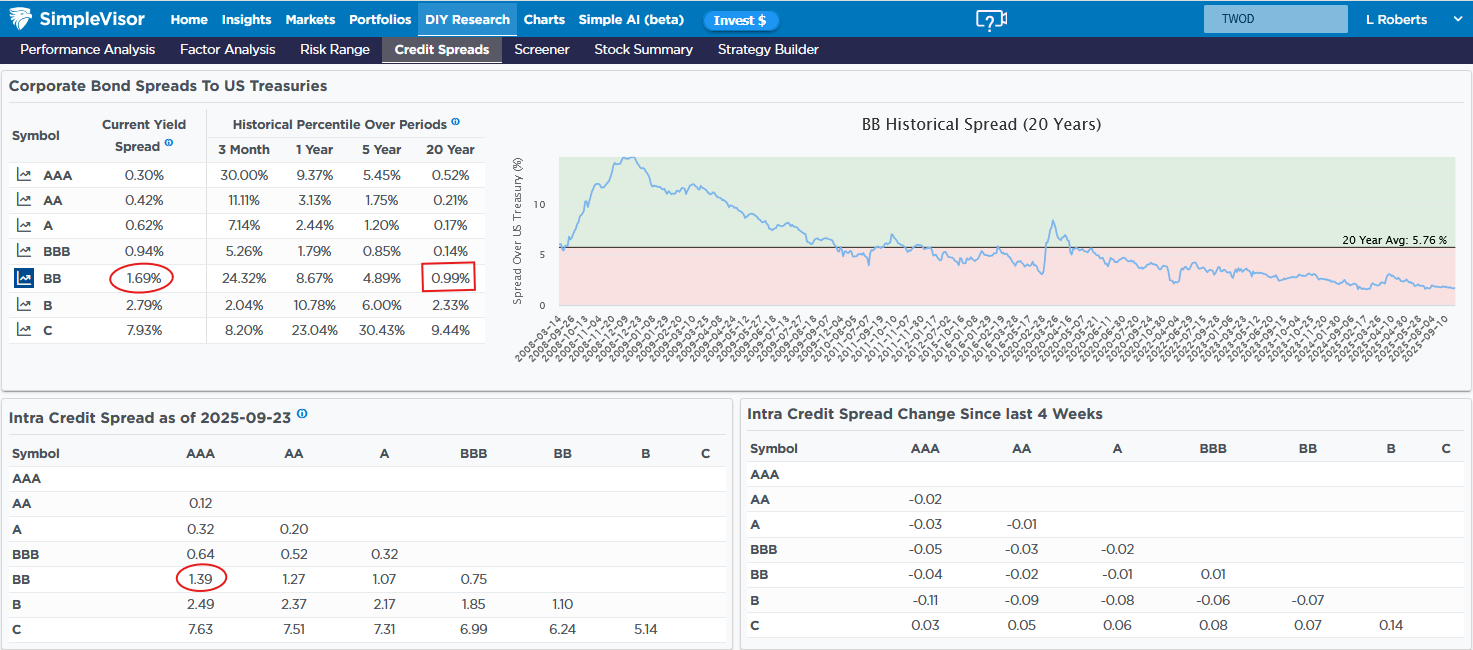
Quantifying BB-Rated Bond Price Risk
With an appreciation for the current status of BB-rated corporate bonds and historical default rates, let’s assess the risk that investor perceptions of risk change. Or more simply, what if yield spreads widen? The graph below shows the two largest episodes of spread widening, both of which occurred from yield spreads similar to today’s levels.
During the 2008 financial crisis, BB-rated yield spreads increased from 1.73% to 14.34%. BB-rated bond investors would have incurred a 63% loss in price from the trough to the peak in yield spread. When the COVID-19 pandemic shut down the global economy, BB-rated bond spreads rose from 1.90% to 7.52%.
These investors would have incurred a 28% loss from trough to peak. The point is that the mere yield premium of 1.69% can be easily erased if investors sense that the economy is at risk and defaults may uptick.
Like high stock valuations, corporate bond spreads will eventually revert to more normal levels. A weakening economy should be a warning that default risks are rising, but corporate bond investors appear to be unconcerned.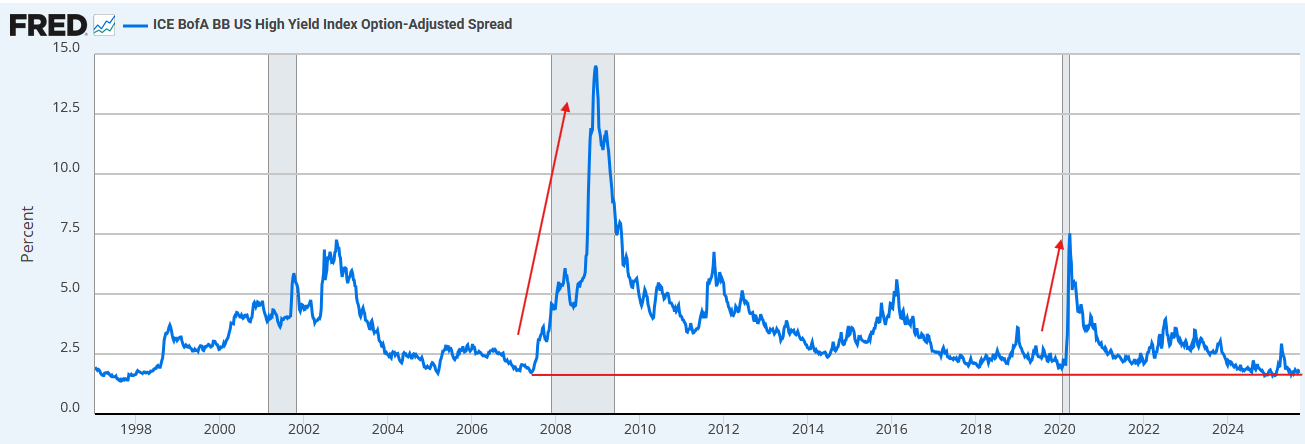
Tweet of the Day
